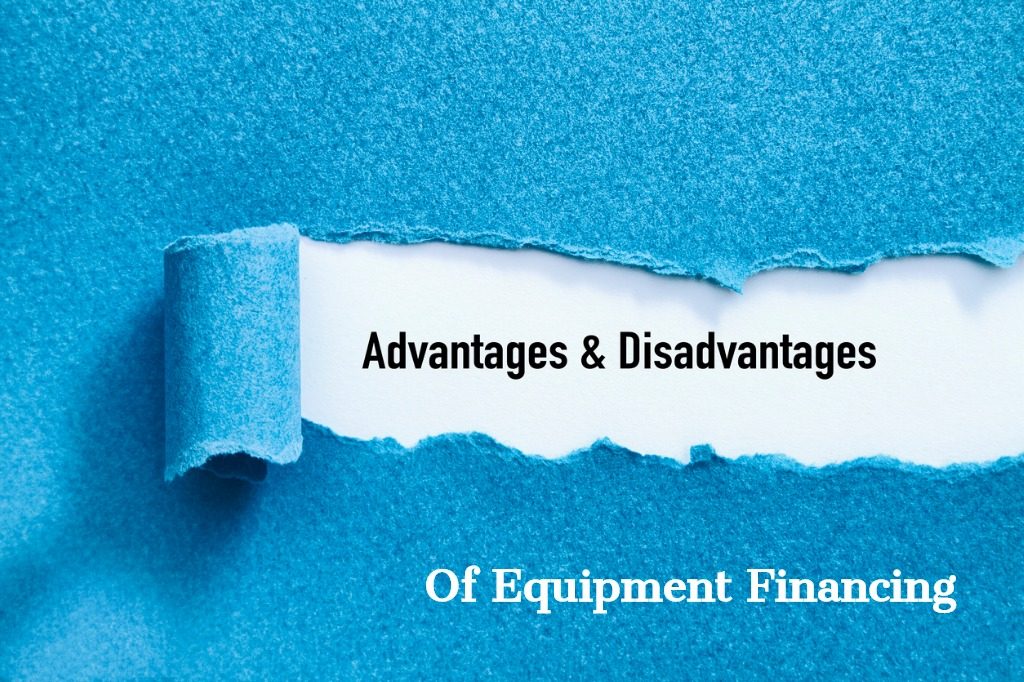
Equipment Financing: What are the Pros & Cons?
A business having access to efficient equipment can be the difference between make or break. Whether it’s a new industrial oven for a bakery, the latest technology in agriculture or even some beautiful furniture for a restaurant, having the right equipment can reduce labor, increase productivity and drive up customer satisfaction.
Getting the right equipment, however, is not always feasible and can fall outside of company budget. Sometimes though, the investment in equipment is essential to driving success, and that’s where equipment financing comes in.
What is business equipment financing?
What is business equipment financing? In short, it’s the specific use of a loan to purchase assets and equipment for your business. Equipment financing essentially has a company’s back, providing the capital needed for the company to grow through the purchasing of necessary equipment. It could be:
Computers
Software
Office desks
Farm equipment
Heavy machinery
And so on…
How equipment financing works:
The equipment itself will act as a form of collateral for the loan, so the business owner won’t need to put any collateral on the table up front. If the loan defaults, the equipment will be used to pay the outstanding balance – so as long as you pay the loan back on time, you’ll have continued use of the equipment until you outright own it (finish paying back the loan).
So if that’s an equipment loan, what is an equipment lease?
Equipment lease vs loan
There’s one key difference when your comparing equipment lease vs loan and it’s in the name – lease.
Equipment leasing – this involves renting the equipment over a given period of time in return for fixed payments, essentially you will never own the equipment, but rather use it for a certain period of time.
Equipment loan – after paying back the loan, you will eventually own the equipment.

Advantages of equipment financing
Business equipment loans benefits
1. Full ownership of the equipment after the loan has been repaid – this is the most obvious benefit of equipment financing. This is particularly useful for equipment that has a long shelf life such as farm machinery, restaurant, and office furniture, unlike other equipment that could become technologically outdated.
2. Tax breaks – we see your ears perking up behind that screen. One of the biggest equipment financing benefits is that if the equipment is 100% for the use of your business, you’ll be able to bag yourself some sexy tax deductions.
3. Resolve cash flow issues – splurging on a big purchase can heavily disrupt your cash-flow, but through equipment financing, you’ll be able to spread the cost out and resolve cash flow issues.
4. No collateral needed – the equipment itself will serve as collateral should you default and become unable to meet your payments, so there’s no need to provide upfront collateral and risk losing it.
5. Flexible payment scheme – your payment scheme will, of course, depend on your lender. Be sure to build up a good relationship with your lender and by simply asking, you should be able to close a flexible payment scheme deal. It could be anything from monthly, seasonally, quarterly and even annually. Just remember, don’t be shy, be sure to suggest to your lender what would be most comfortable for you.
6. Speedy speedy speedy – get the equipment you need promptly. With equipment financing, you can get your hands on the funds pretty quickly, though this greatly depends on the lender you go with. We can’t speak for everyone, but when using Become, you could get the financing you need on the very same day that you applied.
Disadvantages of equipment financing
1. Owning the equipment – no, you’re not crazy, this was on the advantage list too. That’s because outright owning the equipment can be seen as both a positive and a negative. For equipment that can depreciate quickly, for example, computers and software, it may be better to use equipment leasing rather than financing. If you know that you only need a certain piece of equipment for a year, then it would make more sense to use equipment leasing.
2. Restrictive – as implied in the name ‘equipment financing’, this specific type of loan is only for equipment. So if you needed the funds for something else, perhaps hiring, rent or other expenses, then you won’t be able to use your equipment loan. There are other types of funding that can be used which you can find out all about in this guide to business lending.
3. More expensive overall – using equipment financing will work out more expensive than purchasing the equipment up front due to the interest on the loan. If you can afford to do that, great! But unfortunately, this is unfeasible for most businesses.
4. You are responsible for the equipment – this means, if anything should happen to the equipment, you are responsible for all of the maintenance costs. This comes hand in hand with owning the equipment.
How to apply for equipment financing
If you’ve taken all of these points into consideration and feel that the equipment financing benefits outweigh the cons (this, of course, will depend on your business and what kind of equipment you are after), then you may be wondering how to apply for equipment financing.
With Become you can apply easily and quickly online. Simply fill out the online application, connect your online checking account and our AI technology will scan your data and compare it with our many lending partners to see which one you can qualify with.
You could receive equipment loan offers the very same day, and if you qualify for a few lenders, you will be shown the different options, so that you can choose the one you’re happy with.
If you have any questions or queries, be sure to let us know in the comments below.




